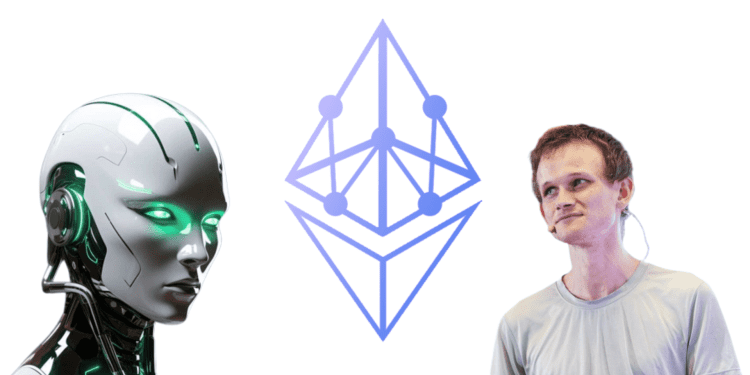- AI could play various roles in crypto like trading bots, providing liquidity to prediction markets, and serving as an interface to explain operations to users. However, the open-source nature of crypto allows attackers to exploit AI systems.
- Using AI for dispute resolution and DAO governance is promising but faces challenges. Attackers can optimize ways to trick AIs without robust defenses like zero-knowledge proofs, which have heavy computing needs.
- More experiments with AI and crypto are needed to see what works. While AI offers potential, risks from crypto’s openness must be addressed as these technologies combine.
Artificial intelligence and blockchain technology are two of the biggest tech trends today. As they continue to advance, there is growing interest in how they may intersect and complement each other. Ethereum founder Vitalik Buterin recently explored some of the potential roles AI could play within the crypto space, comparing it to a player in a video game.
AI as a Player in Crypto
One of the most established use cases has been trading bots that earn money through arbitrage on decentralized exchanges. “This use case has existed for a long time, even with much simpler AIs than what we have today, but ultimately it is a very real AI + crypto intersection,” Buterin wrote. Prediction markets may also emerge that use AIs as players, thanks to their extensive knowledge and willingness to bid cheaply where others won’t. This could provide the liquidity that prediction markets have lacked.
AI as an Interface and Assistant
AI could also serve as an interface and assistant for crypto users. MetaMask already warns users about malicious websites, while Rabby wallet simulates transactions to highlight potential scams. “AI could give a much richer human-friendly explanation of what kind of dapp you are participating in, the consequences of more complicated operations that you are signing, whether or not a particular token is genuine, and so on,” Buterin explained. However, open-source nature of crypto means attackers could review the code and trick the AI.
AI for Rules and Governance
Using AI as judges for disputes or to aid in DAO governance decisions is another possibility. But the open-source ethos allows attackers to optimize ways to trick the AI. While zero-knowledge proofs could help, they add to the already heavy computing needs. A trustworthy black-box AI could extend use cases beyond crypto, but it’s challenging to develop.
Conclusion
Buterin looks forward to more experiments with constructive AI-crypto applications to see which ones prove truly viable. While AI offers many promising possibilities, there are also risks inherent to the open nature of blockchain. Developers must navigate these challenges as they explore new ways to combine these transformative technologies.














